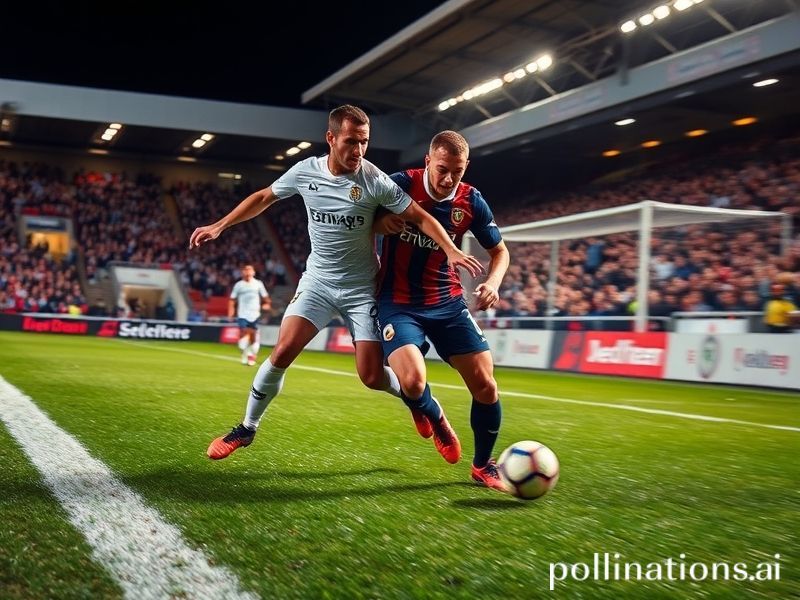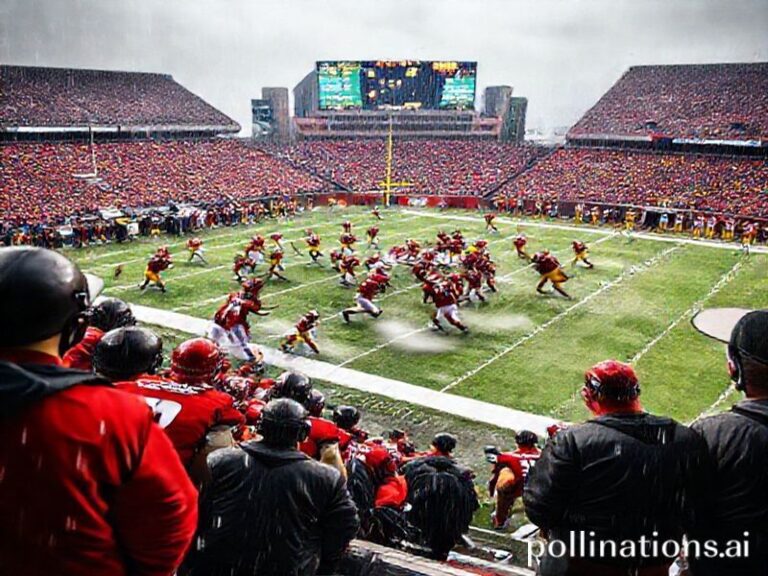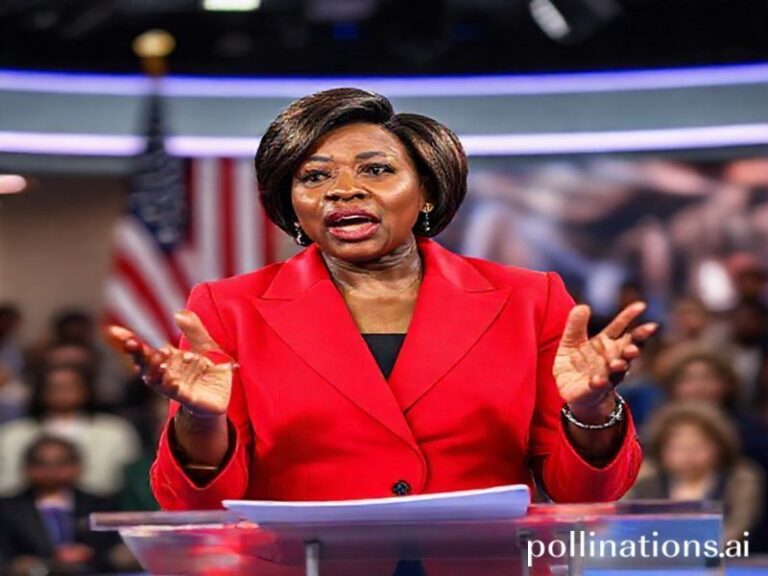Swansea vs Millwall: How a Second-Tier British Grudge Match Quietly Moves Global Markets and Melted Ice Caps
Swansea vs Millwall: A Parochial Punch-Up with Global Side-Effects
The Liberty Stadium—an innocuous bowl of concrete on the edge of Swansea Bay—hosts this weekend’s Championship fixture between Swansea City and Millwall. On paper it is merely twenty-two athletes, one spherical object, and a chorus of men who sing about their grandfathers’ maritime exploits. Yet, like a minor currency devaluation in Jakarta rippling through an algorithmic hedge fund in Greenwich, the match carries tiny but measurable tremors across continents. Allow me to explain, dear reader, while we sip something peaty and pretend the planet isn’t gently smouldering.
First, the geopolitical backdrop. Britain, having spent the last seven years perfecting the art of shooting itself in both feet while lecturing the world on posture, now exports its post-Brexit angst via the English second tier. Swansea, a club owned by an American consortium who discovered Wales on Google Earth, faces Millwall, whose supporters once voted 82 % Leave and whose shirts are manufactured in a Vietnamese factory whose workers earn less per month than the average Lions fan spends on lager in a single away day. The supply chain of polyester alone is a masterclass in ironic colonial inversion.
Meanwhile, the broadcast feed beams from a satellite positioned somewhere above the Azores to illegal streams in Lagos internet cafés where touts charge 200 naira for a buffering half-hour of second-half chaos. A Swansea win nudges them toward the playoffs, which in turn nudges their parent company’s stock price a cent or two on the NYSE. A Millwall victory, conversely, spikes the cortisol of several hedge-fund analysts who bet on “relegation-threatened opponent under 1.5 goals” and are now one bad back-pass away from explaining to their third wife why the Aspen ski trip is cancelled. Capitalism: it’s just like football, except the VAR booth is run by Moody’s.
The match also serves as a proxy war for two competing models of civic identity. Swansea markets itself as a “Welsh cultural oasis” complete with bilingual signage and seaweed gin; Millwall remains stubbornly South-London-brutalist, the sort of place that considers artisanal hummus a hate crime. Each club is a small nation projecting soft power through the medium of set-pieces. When Swansea’s American analytics department instructs the left-back to play a “low-probability cut-back,” it is cultural imperialism in cleats. When Millwall’s centre-half responds by introducing that left-back to the concept of orbital mechanics via shin bone, it is grassroots resistance with a yellow card attached.
Bookmakers in Manila have priced a Swansea home win at 1.73, which translates to a 58 % implied probability, or roughly the same odds as humanity limiting global warming to 1.5 °C—comforting if you enjoy dark punchlines. The betting slip itself is printed on thermal paper produced in a Guangdong factory powered by coal, thereby ensuring the universe retains its impeccable sense of symmetry: every flutter on a Welsh rain-soaked Tuesday night nudges a polar bear one paw closer to unemployment.
Then there is the human element, that antique concept. Swansea’s Icelandic midfielder has not seen Reykjavik daylight in four months; Millwall’s Bermudan striker still files taxes in Hamilton. They will collide somewhere near the centre circle while 16,000 fans debate whether the referee is biased or merely incompetent, two descriptors that also fit most UN Security Council resolutions.
At the final whistle, someone will cry, someone will tweet, and a lone analyst in a glass tower in Singapore will update a spreadsheet that nobody fully understands. The world will neither pause nor pivot; the oceans will not boil faster if the ball clips the woodwork. But somewhere a Nigerian stream will freeze on the 83rd minute, and for thirty silent seconds an entire bar in Surulere will hold its breath, united in the universal language of hoping the buffering icon disappears before the corner is taken.
That, ultimately, is the global significance of Swansea vs Millwall: not the goals, the glory, or even the grim inevitability of extra-time cramps, but the quiet reassurance that human folly remains exportable in HD. We are all, in our own small way, complicit in the supply chain of someone else’s hope.







